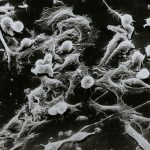Treating little ones needs extra care and compassion. Heart surgery in children (pediatric cardiac surgery) is conducted to repair heart defects at birth in children (congenital heart defects) as well as heart diseases developed in them after birth which requires surgery. Such surgery is vital to the well-being of the child and will be recommended by the best pediatric cardiac surgeons in India.
There are several types of heart defects. Among them, some are mild but others are very complicated and serious. Defects can be detected inside the heart or in big blood vessels, external to the heart. In some cases, surgery is urgent soon after the birth of child, while in others, they will have to wait a few days, months or years. Pediatric heart surgery is concerned with surgical procedures in unborn, new-borns and infants suffering from rhythm related, functional and structural heart issues and other cardiac dysfunctions.
The department of Paediatric cardiology of any major hospital will provide complete non-invasive pediatric and diagnostic cardiac interventional services. The diagnostic modalities include transoesophageal and transthoracic echocardiography, fetal echocardiography, MR and CT angiography, diagnostic cardiac catheterization and round the clock Holter. Cardiac surgeons, cardiologists, anesthesiologists and other professionals work in tandem to deal with cardiac conditions of the unborn and the new-born.
Types of Surgery
Following are the major procedures of pediatric cardiac surgery:
- BAS (Balloon Atrial Septostomy): As per this technique, also referred to as Rashkind procedure, a hole between the left atrium and right atrium of the heart is enlarged. It is often used to manage patients with transposition of large arteries. The bigger hole enhances the oxygenation of blood.
- Angioplasty/Valvuloplasty: Valvuloplasty is the process where a small balloon is placed in an inflated for stretching and opening a stenosed (narrowed) heart valve. In contrast, angioplasty refers to a non-surgical process that can be used to open heart arteries that are blocked.
- Patent Ductus Arteriosus: This is a defect in infants in which the vessel (Ductus Ateriosus) fails to close soon after birth that results in an inflow of blood in abnormal way between the aorta and the Pulmonary artery. For treatment, an incision is made under the chest via which tubes are put in place for regulating blood supply flow.
- Ventricular Septal Defect (VSD) and Atrial Septal Defect (ASD): Both are congenital defects. In the case of ASD, the wall that divides the upper chambers of the heart (atria) does not close fully. Thus surgery is used to place an ASD device into the heart via catheters that are inserted through a tiny incision in the area of the groin. VSD refers to one or more holes in the wall which divides the left and right ventricles of the heart. These ventricles are not separate in the pre-natal heart. But with the growth of the fetus, a wall must grow and otherwise there will develop a hole. This hole can be dealt with by cardiac catheterization.
- Tetralogy of Fallot: Yet another congenital defect, it is a combination of four disorders which impacts oxygen content of the blood. In such cases, surgery is imperative to correct these defects in the infant.
Types of Treatment
Pediatric heart surgeons typically offer surgery for:
- Correcting conditions like holes separating heart chambers, abnormal blood vessels and valve problems.
- Doing repairs to injuries to the heart.
- Doing corrections to other acquired and congenital heart defects.
- Heart/ Lung transplants
Needs for Children
As patients children are different from adults. Infants cannot express the pain and causes of pain. They cannot answer medical questions and maybe uncooperative during treatment. Hence they need treatment from a highly professional team.
Pediatric heart surgeons provide a set-up of care which embraces the special needs of children and their families. They work closely with doctors like pediatric cardiologists. The latter arrange for proper diagnosis of heart problems and arrange for proper management plans, before and after surgery. The best pediatric cardiac surgeons in India may include other specialists on their teams like intensive care specialists, neonatologists, cardiac anesthetists, nurses, and social workers.
When Is Surgery Conducted?
Surgery for some heart defects can be delayed based on their nature. But generally, symptoms that indicate the requirement for surgery are grey/blue nails, lips and skin which indicate lack of enough oxygen in blood; difficulty for breathing since lungs are filled with fluid or congested; issue with heart rhythm or heart rate; poor feeding/sleeping; deficiency in growth and development of a child.
These are all some important facts about paediatric cardiac surgery.











